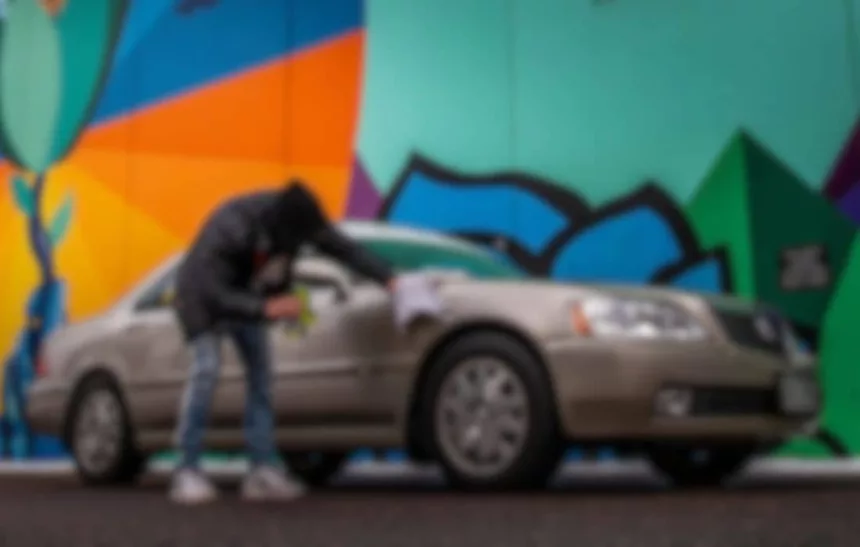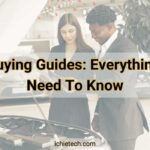Buying a used car can be a great way to save money, but it can also be a risky proposition. Unfortunately, there are many dishonest sellers out there who are looking to take advantage of unsuspecting buyers.
With a little knowledge and preparation, you can protect yourself from falling victim to these schemes. In this article on IchieTech, we will discuss some of the most commonly used car scams and provide you with tips on how to avoid them.
Common Used Car Scams to Be Aware Of
1. The Title Scam
One of the most commonly used car scams is the title scam. In this scam, the seller will sell you a car that has a lien on it, meaning that there is still money owed on the car. The seller will then disappear, leaving you with a car that you cannot legally own. To avoid this scam, always check the title of the car before you buy it. Make sure that the title is in the seller’s name and that there are no liens on the car.
2. The Odometer Scam
Another commonly used car scam is the odometer scam. In this scam, the seller will roll back the odometer on the car to make it appear as though it has fewer miles than it actually does. This can be difficult to detect, but there are a few things you can do to protect yourself. First, check the car’s maintenance records to see if the mileage is consistent with the age of the car. Second, look for signs of wear and tear on the car that would be consistent with the mileage.
3. The Salvage Title Scam
A salvage title is a title that is issued for a car that has been damaged in an accident or other event. In some cases, unscrupulous sellers will try to sell a car with a salvage title without disclosing the fact that it has been damaged. To avoid this scam, always check the title of the car before you buy it. Make sure that the title is in the seller’s name and that it does not have a salvage title.
4. The VIN Cloning Scam
In the VIN cloning scam, the seller will take the VIN number from a legitimate car and put it on a stolen car. This makes the stolen car appear to be legitimate, and the seller can then sell it for a higher price. To avoid this scam, always check the VIN number of the car before you buy it. Make sure that the VIN number on the car matches the VIN number on the title.
5. The Bait and Switch Scam
In the bait and switch scam, the seller will advertise a car at a low price to get you to come in and look at it. When you arrive, the seller will tell you that the car has already been sold, but they have another car that is similar that they can sell you for a higher price. To avoid this scam, always call ahead to make sure that the car you are interested in is still available.
6. The Hidden Damage Scam
In the hidden damage scam, the seller will try to hide damage to the car by covering it up with paint or other materials. To avoid this scam, always inspect the car thoroughly before you buy it. Look for signs of damage, such as rust, dents, or scratches.
7. The Pressure Sale Scam
In the pressure sale scam, the seller will try to pressure you into buying the car by telling you that there are other buyers interested in the car or that the price is only good for a limited time. To avoid this scam, take your time when buying a car. Don’t let the seller pressure you into making a decision before you are ready.
How to Protect Yourself from Used Car Scams
- Do your research: Before you start shopping for a used car, research the market value of the car you’re interested in. This will help you avoid overpaying for a car.
- Get a vehicle history report: A vehicle history report will reveal any accidents, title problems, or recalls that the car has had. You can purchase a vehicle history report from a number of companies, such as Carfax and AutoCheck.
- Get the car inspected by a mechanic: This is one of the most important steps you can take to protect yourself from buying a car with hidden problems. Ask the seller to take the car to a mechanic you trust for a pre-purchase inspection.
- Check the VIN: The VIN (Vehicle Identification Number) is a unique 17-digit number that identifies a car. You can use the VIN to check the car’s history and make sure it hasn’t been reported stolen.
- Be wary of low prices: If a car seems too good to be true, it probably is. Scammers often use low prices to lure in unsuspecting buyers.
- Don’t give money upfront: Never give a seller money upfront, especially if you haven’t seen the car in person or had it inspected by a mechanic.
- Use a secure payment method: When you’re ready to buy the car, use a secure payment method, such as a cashier’s check or a wire transfer.
- Get everything in writing: Make sure you get everything in writing, including the purchase agreement and the bill of sale. This will protect you if there are any problems with the car later on.
Report scams: If you think you’ve been the victim of a used car scam, report it to the authorities
Conclusion
In conclusion, buying a used car can be a great way to save money, but it can also be a risky proposition. To avoid used car scams, always check the title of the car, inspect the car thoroughly, and take your time when making a decision. By following these tips, you can protect yourself and drive away happy.










